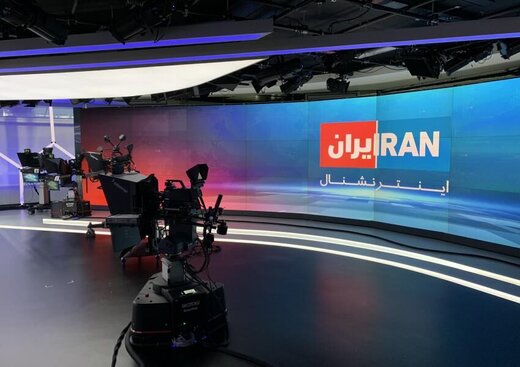Despite the ceasefire agreement between the Islamic Republic of Iran and Israel, the crisis affecting Iranian media, which intensified during the 12-day war, persists, with a new wave of journalist dismissals from media outlets. Concurrently, Iran International reported organized cyberattacks targeting the television network and its staff.
According to a report by the Defending Free Flow of Information (DeFFI) on the suppression of Iranian journalists and media in the first half of 2025, during the “12-day war,” media outlets, journalists, and Iranian citizens experienced the most extensive crackdown on free information dissemination since the start of 2025. During this period, the Islamic Republic of Iran employed its full judicial, security, and propaganda capacities to restrict the publication of unofficial news and reports and to cut off Iranian citizens’ access to independent information.
Iranian prosecutors, during and after the war, filed charges against at least eight media outlets and journalists. One news outlet was shut down, two journalists faced temporary detention, several media outlets, journalists, and photojournalists received “warnings,” and a widespread wave of arrests targeted citizens who expressed opinions about the military conflict. During and after the Iran-Israel war, judicial and security crackdowns on journalists and media were not limited to Iran. The Islamic Republic’s transnational threats against Iranian journalists and employees of media outlets abroad reached alarming levels.
Despite the ceasefire between Iran and Israel, restrictions on Iranian journalists and, in some cases, cyberattacks on media outlets and their staff continue. Iran International confirmed in a statement that the Telegram accounts of several of its employees were hacked. The network attributed photos and information about its journalists, published by the hacking group “Hanzaleh,” to “two separate cyberattacks in the summer of 2024 and January 2025.” The hacking group claimed to have identified “71,000” Iranian citizens who had contacted Iran International.
Meanwhile, the Islamic Republic’s state broadcaster claimed that “confidential correspondence, personal information of employees, financial records, and communications with foreign entities” of Iran International had been “completely hacked,” though no evidence has been provided to substantiate this claim.
Iran International described these cyberattacks as “part of a broader campaign of threats” against the network, which also includes “physical threats against its staff.” This is not the first instance of harassment by Islamic Republic agents targeting Iran International journalists and their families. On the ninth day of the Iran-Israel war, the Islamic Revolutionary Guard Corps detained three family members of one of the network’s presenters residing in Iran. Additionally, Iran International journalists have repeatedly faced threats, assassination plots, and knife attacks.
The Tehran Province Journalists’ Association also published a report highlighting “job instability” and a decline in “professional security” for journalists following the war’s end. The report noted: “After the war, approximately 150 journalists from various reputable and established media outlets were dismissed under pretexts such as ‘cost reduction,’ ‘financial restructuring,’ and ‘staff consolidation.’”
DeFFI condemns the cyberattacks, privacy violations, and psychological and physical violence against journalists, viewing these actions as blatant attacks on freedom of expression and gross violations of citizens’ rights to access independent information. Such actions, aimed at intimidating journalists and disrupting the free flow of information, are unacceptable and violate the fundamental rights of Iranian citizens. DeFFI calls for urgent, decisive, and effective measures by governments and international organizations to protect Iranian journalists and their families from the Islamic Republic’s transnational threats and organized harassment.
